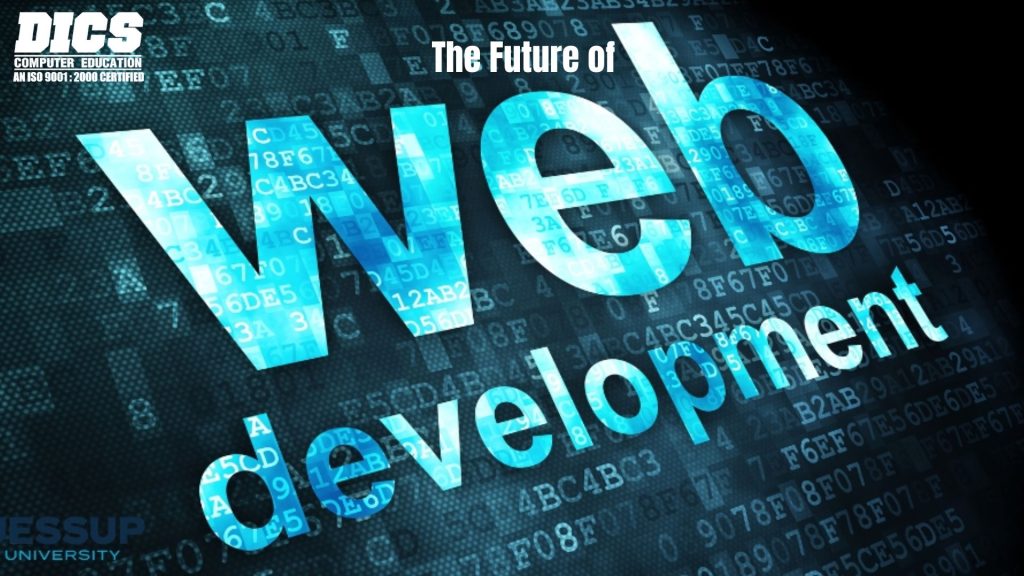Web development has undergone an extraordinary transformation over the past two decades. What began as static HTML pages has evolved into interactive, responsive, and dynamic digital experiences. Now, as we approach the future, the landscape of web development is poised for even more disruptive changes. Technologies like Artificial Intelligence (AI), Progressive Web Apps (PWAs), the Web3 revolution, and immersive user experiences are setting new standards. Let’s explore the future of web development and how developers can adapt to stay ahead of the curve.
-
AI-Driven Development: The New Paradigm
Artificial Intelligence is already making its mark on web development, but the future promises even deeper integration. From AI-powered code assistants like GitHub Copilot to automated testing and deployment, AI is streamlining the development workflow. Imagine a scenario where an AI can not only suggest but also generate complex code snippets based on minimal input or optimize a website’s structure for performance and SEO in real time.
Additionally, AI will play a pivotal role in creating personalized user experiences. Intelligent algorithms will analyze user behavior to present content dynamically, making websites feel more intuitive and engaging. The rise of AI chatbots will further enhance customer interaction, offering human-like support 24/7, which will be crucial for businesses seeking to improve customer service.
-
The Rise of Progressive Web Apps (PWAs)
PWAs are set to blur the lines between native apps and traditional websites. By offering app-like experiences in a browser, PWAs combine the best of both worlds: seamless performance, offline access, and push notifications without the need for installation. As more companies seek to reduce development costs, the adoption of PWAs will skyrocket.
The future will likely see PWAs becoming the norm, thanks to advancements in browser capabilities and increasing mobile traffic. They will not only enable faster load times and a more consistent user experience across devices but also empower businesses to reach audiences with less friction, significantly boosting engagement.
-
Web3 and Decentralized Applications (DApps)
Web3 represents the next iteration of the internet, built on decentralized blockchain technology. In the future, web development will be deeply intertwined with Web3 concepts like smart contracts, decentralized finance (DeFi), and non-fungible tokens (NFTs). Developers will be tasked with creating decentralized applications (DApps) that offer greater transparency, security, and user control.
This paradigm shift means a new skill set will be necessary—one that includes knowledge of blockchain protocols, Solidity programming for smart contracts, and a grasp of decentralized storage solutions like IPFS. Web3 adoption may still be in its early stages, but as businesses and users demand more ownership and control over their data, DApps will become a fundamental aspect of web development.
-
Immersive Experiences: AR, VR, and Beyond
The future of web development will embrace more immersive technologies like Augmented Reality (AR), Virtual Reality (VR), and Mixed Reality (MR). As hardware and software capabilities grow, websites will move beyond flat interfaces to offer experiences that are interactive and visually rich.
Imagine browsing an e-commerce website where you can try on clothes virtually, or a real estate site where you can take a VR tour of properties. The applications of AR/VR will expand beyond gaming and entertainment into retail, education, and even healthcare. Developers will need to get comfortable with libraries and frameworks like WebXR to bring these futuristic experiences to life.
-
No-Code and Low-Code Platforms: The Democratization of Development
No-code and low-code platforms are simplifying the development process, enabling non-technical users to build websites and applications without needing to write code. While some developers may view this trend as a threat, it actually opens new opportunities.
As these platforms evolve, they will likely handle more complex functionalities, leaving developers to focus on creating highly customized solutions and integrating these platforms into larger ecosystems. In the future, the role of a developer might become more of an orchestrator, utilizing no-code tools for rapid prototyping and iterative development, while still contributing advanced code where needed.
-
Ethical Web Development and Sustainability
With the growing concern over the environmental impact of technology, web development will also see a push towards more sustainable practices. This includes optimizing websites for energy efficiency, reducing data transfer, and employing green hosting solutions.
Moreover, ethical considerations will take center stage. From ensuring accessibility for users with disabilities to respecting user privacy and data, developers will be increasingly called upon to build web experiences that are not only functional but also socially responsible.
-
Enhanced Security Measures and Quantum Computing
Security has always been a critical aspect of web development, but the future holds even greater challenges. As cyber threats evolve, developers will need to adopt more advanced security measures, such as zero-trust architectures and AI-based threat detection.
Moreover, with the potential advent of quantum computing, traditional encryption methods could become obsolete. Preparing for this seismic shift will require a revaluation of security protocols and possibly the adoption of quantum-resistant algorithms to ensure the integrity and confidentiality of web applications.
-
Preparing for the Future: A Developer’s Guide
As the web continues to evolve, developers must remain agile and forward-thinking.
- Upskill Continuously: Keep learning about emerging technologies like AI, blockchain, and immersive web development.
- Embrace New Tools: Explore low-code/no-code platforms, AI-assisted development tools, and frameworks for AR/VR.
- Prioritize User Experience: Focus on creating fast, accessible, and engaging user experiences across devices and contexts.
- Adopt a Growth Mindset: Be open to change and willing to explore new paradigms as they arise.

